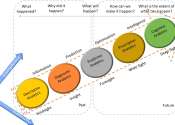Researchers' approach may protect quantum computers from attacks
Quantum computers, which can solve several complex problems exponentially faster than classical computers, are expected to improve artificial intelligence (AI) applications deployed in devices like autonomous vehicles; however, ...
Mar 7, 2024
0
18









